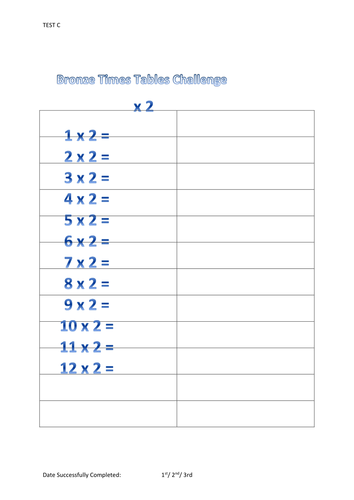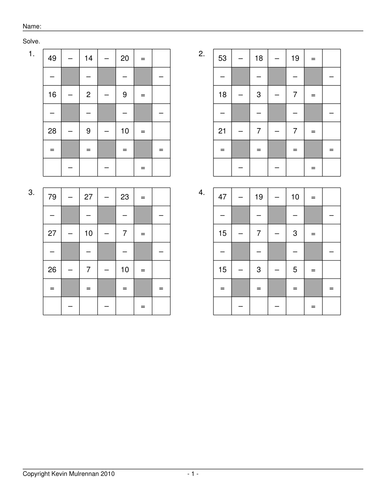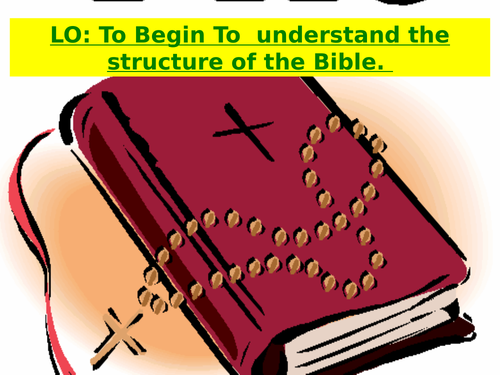406Uploads
122k+Views
41k+Downloads
All resources

Year 6 Literacy Revision Autobiography Explanation Texts The Shirt Machine
Nice Summer planning for year 6.
Focuses on the Shirt Machine.
Plenty of planning and powerpoints etc.

Science Healthy Eating 5 Powerpoints Planning Worksheets Year 5 and 6
A great unit on healthy eating.
Lovely series of 5 powerpoints plus bits and bobs.
sample planning :
Keeping healthy
In this unit we will learn:
· there are many aspects to keeping healthy
· about the heart
· how heartbeat is affected by exercise
· how early ideas about diet & health were tested
Enquiry Skill Focus:
· repeating measurements
· representing data in bar charts and graphs and interpreting these
· using results to draw conclusions
Begin by discussing ‘science’ with the class. What do they think of the subject? Can they name any important scientific skills?
Introduce topic and ask children what they think the word ‘health’ means. Talk with talk partners. Children to find definition in dictionary and write class definition on strips of paper for display wall. Lead into a class discussion on keeping healthy; can the children predict what sorts of topics we might we might be covering? Can the HA children predict what SC1 investigations we might be carrying out? Introduce children to the resources which will be available to help them during this topic; the working wall plus table mats. Explain that each science topic will have a topic page and a glossary. This glossary gives the definitions of important vocabulary which they will come across during the unit.
Activity One
Children to feed back and complete class prior knowledge map. (Even if facts are not correct, add them on and clear up misconceptions throughout unit.) Children could add to their own map in a different colour any facts they have not got, which their peers suggest.

year 6 Literacy Fiction Genre To plan, draft, write and improve an engaging short story
4 main weeks’s work.
Plus powerpoints and resorces.
Great for year 6.
Sample planning.
Learning/Writing outcome: To plan, draft, write and improve an engaging short story in a particular genre using appropriate language and organisational features.
Introduce the words ‘fiction’ and ‘genre’. TTYP and discuss the meaning of the word ‘genre’. At this point, introduce the new and improved writing journals where children can make notes during lessons, can jot down words they wish to magpie, jot words that they have generated but which aren’t suitable for the task in hand and can jot questions/things they are unsure about. Explain that I will prompt to use these for the first couple of days but then children need to become more independent. Prizes for most effective use!
Ensure the children understand the difference between fiction ‘narrative’ and non fiction ‘non narrative’.
Activity One
Come back together and do class mind map for working wall.
Ask children to think of any titles of books which could fit with any of these genres. Ask children to discuss their preferences and discuss our preferences with them.
Activity Two
Talk about how they sorted the books in activity two. What clues were you looking for? Talk about words which suggest different genres. Explain activity three.
Activity One
In lit books complete quick mind map of different types of fiction genre.
Activity Two
Children to work in table groups. Children to be given a wide range of fiction books from class/school library.
Children to sort the books into fantasy, historical, science fiction and mystery by scanning the book, looking at the front cover and reading the blurb.
Activity Three
Children to have a selection of pictures from books (front covers and insides) and blurbs from a variety of fiction books. Ch to decide which genre they think they book comes from and justify their opinion by highlighting the key words or annotating the pictures.
SEN: () to work as a group on this task.
MA: In pairs. With teacher to work with ‘Quality Question Marks’ (both groups).
HA: Independently.
Plenary:
What have we learned? What is narrative? Non narrative? What is a genre? Name some genres of narrative? What is your favourite? Why? Least favourite? Why?
Does this link to visual literacy (i.e. do films and TV programs split into genres?)

Times Tables Worksheets 2 to 12 18 Worksheets Mathematics Revision Test C
Worksheets to help times tables.
The 2 to 12 times tables are tested.
3 sheets for each one. You get 33 sheets
The third sheet, for example, has a mixture of multiplication and division questions.
The preview has the sums not quite lined up for some reason. The downloaded sheets are fine so no worries there.
These are test C. Tests A and B are also available.

KS2 Mathematical Puzzles Across Down Subtraction
100 puzzles plus answers.
Fill in the gaps in the grids. Mainly 2 figure numbers but some 1 figure ones.
Great for homeworks or time filling.

Year 3 Planning Summer Term Literacy Mathematics Ref A
Important! If you’d like to buy the whole year’s planning (Autumn, Spring and Summer) you’d be better off buying my bundle.
This is planning for year 3 for a Summer term.
Plenty of great material here that you can adapt and cut and paste into your own school’s model.
After decades of teaching I’m retired from teaching now. I’d like to help the younger generation so I’m putting my plans online. I hope your Sundays will be made a little easier by cutting and pasting allowing you more free time.
You get:
Literacy planning e.g. Adventure and Mystery Stories 4 weeks, Authors and Letters 4 weeks, Plays and Dialogues 3 weeks
Numeracy 9 weeks
Creative curriculum (a bit)
RE (a bit - I taught mainly in Catholic schools so feel free to ditch this if you please)
Science (a bit)
You get 190 mb of material, which is good value in my opinion.
Remember, all schools are different so you will have to adapt my materials to suit your school. It’s not a silver bullet, but should save you lots of time as you can cut and paste.
Great for N.Q.T.'s and experienced alike.

Easter Resources Powerpoints Lessons PDFs Catholic Flavour Lots of Resources
I’ve combined all my planning from the schools I taught in.
I was in a few schools in the U.K., quite a few of them Catholic.
There is a massive amount of planning for you to sift through. Years range all the way through from 4 year olds to 11 year olds.
There’s some great powerpoints, lesson plans, sheets, even a play or two.
You’ll have to sift through them as I am enjoying my retirement too much to do that!
You get over 250 mb of stuff (300 plus files)

Anti Bullying Week Materials Citizenship Assemblies Powerpoints Word Documents
From my schools.
Anti Bullying week stuff.
Lots of powerpoints and word documents.
Great springboard for your ideas. Adapt for your school. Great for assemblies.

Six Powerpoints Explaining the Early Books of the Bible Religion
6 Powerpoints on the early books of the bible.
Plus Planning and worksheets.
Stuff on Cain and Abel etc

Planning Year 1 Spring Term Literacy Numeracy
Important! If you’d like to buy the whole year’s planning (Autumn, Spring and Summer) you’d be better off buying my bundle.
Planning for the Spring term for year 1.
You get 72 mb of material so good value imo.
I taught in Catholic schools so a Catholic bent. But as we live in a multicultural society, that is good.
You get planning for:
Creative Curriculum
Literacy
Numeracy
R.E.
Science (Animals and Plants)

Year 5 Spring Planning Literacy Persuasive Writing & Aesop Worksheets Close
Save your Sundays!
Great planning for 6 weeks.
Plenty of powerpoints, worksheets and planning.
Plus a load of Aesop worksheets close tests.
Cut and paste into your template and enjoy a cuppa on Sunday nights watching the telly

Year 5 Autumn Term Numeracy Mathematics Planning & Times Table Worksheets
Reclaim your Sundays!
Year 5 Autumn planning for Mathematics.
Plus great worksheets on Times Tables.
This is a different set of Maths plans from all my others that are on TES
Adapt them for your school. Cut ans paste and adapt to your needs.
Topics include
Handling data and measures
Securing number facts, understanding shape
Addition and Subtraction Methods.
and many more
Plus great worksheets that help pupils with their Times Tables.

15000 Pythagorus Questions Pythagorean Theorem Maths KS2 KS3
Loads of questions on Pythagoras plus answers.
Excellent for practice or homework.
The zip file contains a pdf of 3750 pages of questions. The answers file is the same.

Year 4 Literacy Plans Persuasive Text poetry Imaginary Worlds
Literacy plans for year 4.
Mainly word doucuments for
recounts
newspaper
book week
persuasive texts
poetry
antibullying week
imaginary worlds
stories with historical settings
stories with imaginative settings
stories with historical settings narrative writing and book week
creative writing
holy week
Bits of Roald Dahl the Twits references.
Sample planning : What newspapers and magazines can the pupils name?
What are the articles usually about?
Discuss the purpose of a newspaper.
WALT – know the features of a newspaper text.
WILF – good expression
Read through the opening paragraph of a newspaper article. Children to discuss the features and the structure of the opening paragraph.
Newspaper articles have all of the important information in the opening paragraph. The opening paragraph is not overly descriptive. This information includes who, what, when, where, why and how. (It is written this way because most people do not read an entire newspaper article all the way through. So newspaper writers put the most important information at the beginning).
Children wrote learn the opening paragraph of a newspaper article. Firstly as a class, followed by group work.
Recap the features of an opening paragraph of an article. SW – target group to discuss the features of the article.

Science Year 4 Planning Friction Habitats Moving Growing Solids Liquids
Some great planning for year 4 Science.
Plenty of material. Planning, powerpoints etc.
Four vital areas.
Nice experiments.

Year 4 Numeracy Planning lots of lessons Powerpoints pdfs Notebook files
Some great planning you can use throughout the year for year 4 Maths.
I’ve divided it into 9 blocks.
sample planning :
Partition, round and order four-digit whole numbers; use positive and negative numbers in context and position them on a number line; state inequalities using the symbols
MA2 L3 How many _ in each number? Children recognise how many Th, H, T & U are there WALT – Order and partition 3 and 4 digit numbers
WILF – knowledge of place value
Well organised work
Pupils to be reminded of place value. Which column to we go to first to see which the bigger number is? What does it mean to partition a number? Children work though a couple of t. led examples.
MA – 4 digit number sheet (MT)
A – 3 digit number sheet (Indep)
LA – partitioning 2 digit numbers. Discuss what each number is made up of - which is the biggest number in a group. Q? What happens if we swap the t & u around? (JH) Prep for Tue – do any children remember the rule for rounding. Discuss in talk partners and report back
Partition, round and order four-digit whole numbers; use positive and negative numbers in context and position them on a number line; state inequalities using the symbols How many _ in each number? Children recognise how many Th, H, T & U are there WALT – round numbers to the nearest 10, 100 and 1000
WILF – rounding numbers accurately
Mental addition of 2 digit nos
Well organised pencil procedures Remind pupils of the findings from yesterday’s plenary. How do we round to the nearest 10? What about to the nearest hundred. Children put rule to the test using whiteboards to assess understanding. Children will be asked to add two numbers mentally and round the answer. Which mental strategies could we use? Ch discuss best way. MA to use pencil a paper proc with bigger numbers.
Differentiated worksheets MA – ind A – MT less able JH Investigation. What is the highest and lowest numbers that will round to 4000. What is the difference?
Multiply and divide numbers to 1000 by 10 and then 100 (whole-number answers), understanding the effect Children to use whiteboards – 10 x =
Division Q? For MA WALT – multiply divide whole numbers by 10, 100
WILF - Understanding of the process
Well organised work
Moving onto decimals
Mental maths methods
What happens to a number when you multiply it by 10? Key points Children will know that add a 0 is not the correct answer. Decimal point stays in the same place.
All children start by demonstrating their knowledge of mult by 10 and 100 then dividing by 10 100
MA – working with a mixture of whole and decimal numbers (JH)
A – using whole numbers only
LA – multiplying by 10 JH Who can explain the rule? Pupils are given 3 minutes to come up with the rule for multiplying by 10 or 100. Feedback to the rest of the class

15000 Questions on Pythagoras Answers Provided Mathematics Geometry KS2 Vol 2
15000 questions on Pythagoras.
All answers provided.
Students have to use their calculators to work out the length of the third side of a triangle.
The first 5000 questions I have used small numbers, the next third medium numbers and the last third large numbers.
Answer sheets provided.
A good little exercise for your students. Using a calculator this should keep them busy and help you teach Pythagoras’ theorem

Year 3 Planning Spring Literacy Numeracy Ref A
Important! If you’d like to buy the whole year’s planning (Autumn, Spring and Summer) you’d be better off buying my bundle.
This is planning for year 3 for a Spring term.
Plenty of great material here that you can adapt and cut and paste into your own school’s model.
After decades of teaching I’m retired from teaching now. I’d like to help the younger generation so I’m putting my plans online. I hope your Sundays will be made a little easier by cutting and pasting allowing you more free time.
You get:
Literacy planning e.g. Myths and Legends, Poetry (language play) 9 weeks worth
Numeracy planning 11 weeks worth
Creative curriculum (a bit)
RE (a bit - I taught mainly in Catholic schools so feel free to ditch this if you please)
Science (a bit)
Nocturnal Animals (a bit)
You get 75 mb of material, which is good value in my opinion.
Remember, all schools are different so you will have to adapt my materials to suit your school. It’s not a silver bullet, but should save you lots of time as you can cut and paste.
Great for N.Q.T.'s and experienced alike.

Year 2 planning Autumn Term Literacy Mathematics Ref B
Important! If you’d like to buy the whole year’s planning (Autumn, Spring and Summer) you’d be better off buying my bundle.
Planning for the Autumn term for year 2.
60 mb of info which is good value imo.
You get:
Literacy planning 12 weeks. Performance poetry, Stories with familiar setting etc.
Maths 14 weeks Measuring, Money etc
Creative curriculum (a bit) the Police
R.E (a bit) I taught in Catholic schools so feel free to ditch this.
Science (a bit) Forces and Motions, Health and Growth
Remember, all schools are different so you will have to adapt my materials to suit your school. It’s not a silver bullet, but should save you lots of time as you can cut and paste.
Great for N.Q.T.'s and experienced alike.

Year 2 Spring Term Planning Literacy Numeracy Mathematics Ref B
Important! If you’d like to buy the whole year’s planning (Autumn, Spring and Summer) you’d be better off buying my bundle.
Year 2 planning for the Spring term.
You get 70 mb of info which is good value imo
Literacy 12 weeks plans. Fantastic Mr Fox, Different Stories by the same author etc
Numeracy 13 weeks Securing number facts, understanding shape etc
Creative curriculum (bit) Great Fire of London, E Safety
P.E (a bit)
Science (a bit) materials, electricity
R.E. (a bit) Marriage. I taught in Catholic schools so feel free to ditch.




















